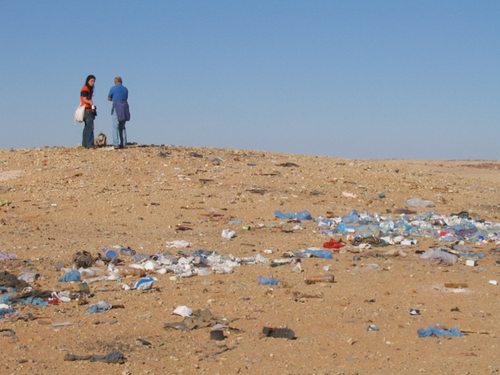RESEARCH PROJECT

How to manage waste disposal in a refugee camp in the desert? The answer may be the creation of a controlled landfill, set up in natural depressions of the ground, where the waste is compacted and stored in overlapping layers.
The project of the Department of Civil, Chemical, Environmental and Materials Engineering of the University of Bologna was created to provide an answer to the condition of chronic emergency in which the Saharawi people are located. After the occupation of their territory by Morocco, since 1975 the Saharawis occupy a small portion of Western Sahara, near Tindouf, in Algeria. An inhospitable area in which more than 250,000 people live in refugee camps supported by humanitarian aid from the international community. The camps are divided into four districts, called "wilaya" (El Ayoun, Smara, Dahla and Auserd), further divided into villages, called "daira", organized in neighborhoods.
The study was developed in the Smara wilaya, which houses 80,000 people within 7 dairas. To survive, inhabitants eat the food that is sent with humanitarian aid. However, because of transport packaging, huge quantities of solid waste are created: plastic, paper and cardboard, wood, textiles, ferrous and non-ferrous metals.
Before the project was started, the waste was collected by three trucks that stopped along the main roads at fixed points at established times. Waste materials were then stored in a temporary warehouse about a kilometer away from the wilaya, and afterwards moved to an area three kilometers away, where they were burned. A practice that, storing the waste in an uncontrolled manner and burning it in the open air, exposed the population to serious health risks.
The need therefore arose to reorganize waste management, redesigning the collection system and disposal in landfills. In particular, using controlled landfills, built in natural depressions of the ground. Here the waste is compacted, stored in overlapping layers and covered daily appropriately. A solution that has improved the living conditions of inhabitants and which has been reached by involving a series of interviews with the women of the Union de las Mujeres Saharauis, political representatives, representatives of the waste project and other local technicians.
Collaborations:
Province of Ferrara
Emilia Romagna Region
Union de las Mujeres Saharauis - UMS